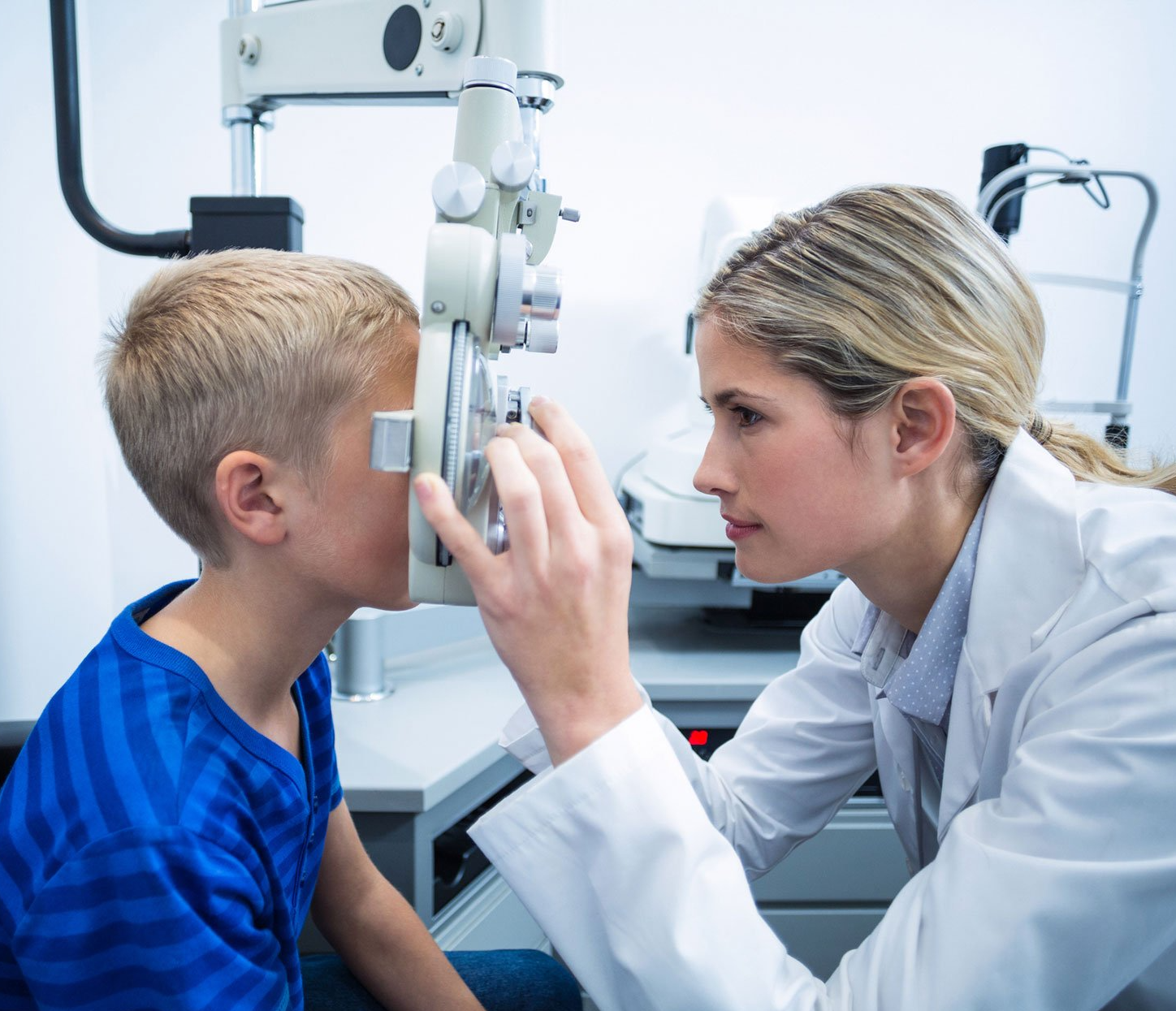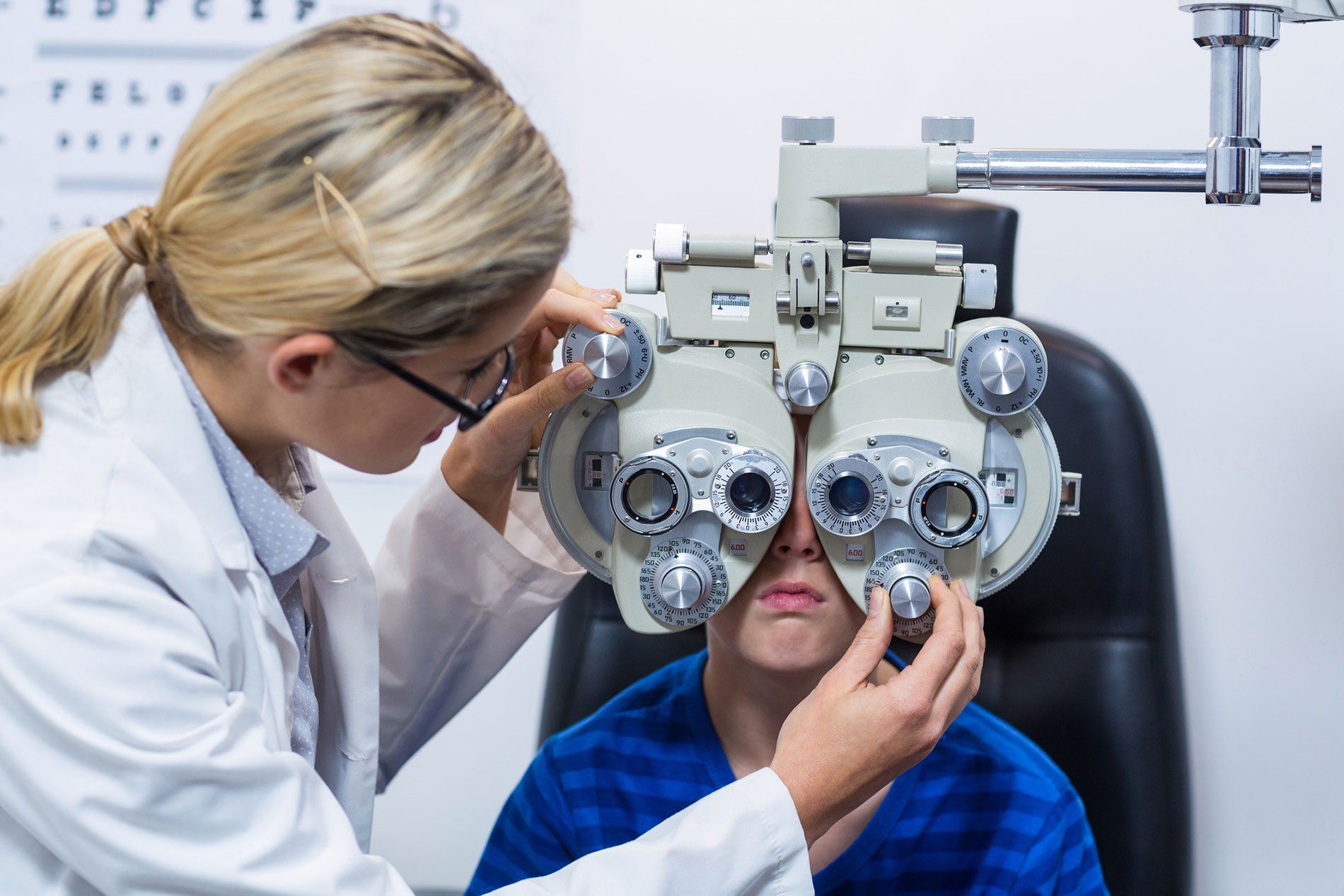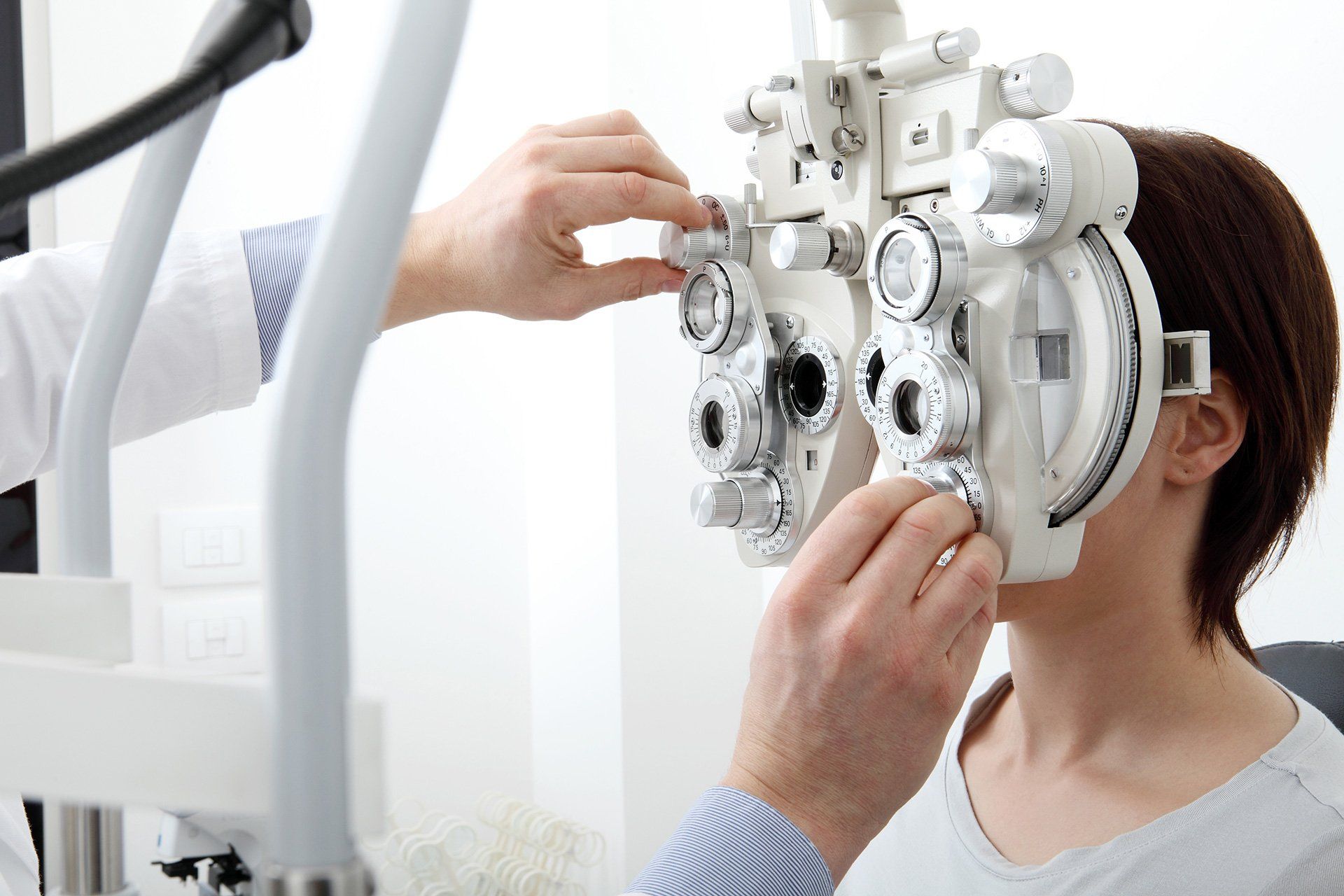WHAT TO EXPECT DURING A COMPREHENSIVE EYE EXAM
What to Expect During a Comprehensive Eye Exam
A comprehensive eye exam is essential to maintaining your vision and overall eye health. Knowing what to expect can help you feel more comfortable and prepared, whether it's your first exam or a routine check-up. Unlike a quick vision screening, a comprehensive eye exam goes beyond checking your ability to see clearly. It involves an in-depth evaluation of your eye health, allowing your optometrist to detect early signs of eye conditions and ensure your eyes function properly. Here’s what typically happens during a comprehensive eye exam and why it’s important.
- Medical and Vision History Discussion – Your eye exam will usually begin with a discussion about your medical and vision history. Your optometrist will ask about any issues you’re currently experiencing, such as blurry vision, eye strain, or headaches, as well as any previous eye conditions. It’s also important to share information about your general health, including any medical conditions like diabetes or high blood pressure, as these can affect your vision. Be sure to mention any medications you’re taking, as some can have side effects on your eyes.
- Vision Tests (Visual Acuity) – One of the first tests in a comprehensive eye exam is a visual acuity test, which measures how clearly you can see at different distances. You’ll be asked to read letters on an eye chart, both near and far, to assess the sharpness of your vision. This is the part of the exam where your optometrist determines if you need glasses or an updated prescription.
- Eye Muscle Function Test – Your eye doctor will also test your eye muscle function to ensure that your eyes are working together properly. This involves following an object with your eyes, such as a pen or light, while the optometrist observes how well your eyes track movement. This test helps identify any issues with eye alignment or coordination, which can affect vision quality.
- Pupil Response Test – During the exam, your optometrist will check how your pupils respond to light. This is done by shining a small light into your eyes to see how your pupils dilate or contract. Abnormal pupil responses can indicate underlying issues with the nerves or muscles in your eyes and may lead to further testing if needed.
Schedule Your Eye Exam Today
Take the first step toward protecting your vision and eye health today! Whether you're due for your annual eye exam, need a new prescription, or have concerns about your eyes, our experienced optometrists are here to help. Schedule an appointment with East Norwich Optics and enjoy personalized care, advanced diagnostics, and the peace of mind that comes with knowing your vision is in good hands. Don’t wait—book your comprehensive eye exam now and see the world more clearly.











